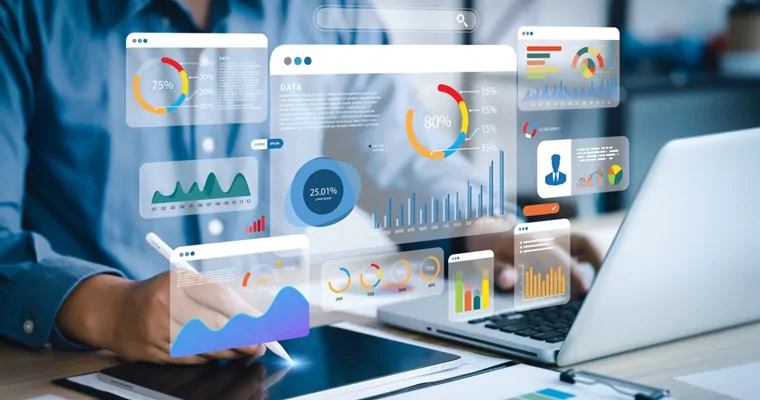Python vs. Rust: The Best Language for High-Performance AI Services
When it comes to building high-performance AI services, one of the most common questions floating around is: should you use Python or Rust?
On paper, both are solid choices. They’re reliable, powerful, and have a strong community behind them. But in real-world projects, where performance, maintainability, and developer productivity matter, the choice between Python and Rust becomes a bit more layered.
Let’s break it down and talk straight.
Python: The Go-To for AI Projects
Python is practically everywhere in AI. From data preprocessing to deep learning, people lean toward it for one big reason: ease of use.
You don’t need to jump through hoops to get started with Python. That’s why most data scientists and AI engineers pick it up early. Libraries like TensorFlow, PyTorch, and scikit-learn make the whole process of building AI models smoother.
Python isn’t just about libraries, though. It’s also about the ecosystem. Tools, tutorials, plug-ins—Python’s got it all. You can spin up a model in a notebook, tweak some parameters, and see results instantly. It keeps the experimentation process fast and flexible.
But that’s where things also start to crack a little.
Where Python Starts Slowing You Down
Python is interpreted, which means it’s slower than compiled languages. For simple workflows, this doesn’t hurt much. But when you’re scaling AI services or need real-time responses, Python starts lagging.
For instance, if you’re building an AI-powered recommendation engine for an app with millions of users, Python might not cut it. The startup time, memory usage, and slower execution can all add up.
You can patch some of these issues using C extensions or tools like Numba or Cython. But now you’re adding complexity to the stack.
And let’s not even get into Python’s struggles with concurrency. The Global Interpreter Lock (GIL) can be a real bottleneck when you need to run multiple threads efficiently.
Enter Rust: The New Contender
Rust is fast. Really fast. It’s a systems programming language that compiles down to machine code, which means no runtime overhead. That makes it a solid choice for projects that demand top-level speed and resource control.
AI services don’t just live in notebooks. They’re deployed into real-time systems, integrated with APIs, and expected to perform under pressure. That’s where Rust shines. Memory safety, zero-cost abstractions, and tight control over performance make Rust a strong candidate for high-performance tasks.
Unlike C++, which also offers speed, Rust doesn’t let you shoot yourself in the foot with memory issues. That peace of mind matters when you’re scaling services.
So Why Isn’t Everyone Using Rust?
Good question. Rust has a steeper learning curve. If you’re coming from Python, the strict compiler checks and the ownership model might frustrate you at first. It demands more effort up front.
Also, Rust’s ecosystem for AI isn’t as mature. While there are growing libraries like tch-rs (Rust bindings for PyTorch) or ndarray, they’re not as plug-and-play as Python’s offerings.
If you’re doing heavy experimentation, Rust might slow you down. But if you’re deploying a production-grade AI service where speed matters, Rust starts looking real good.
Choosing Between Python and Rust
Here’s the real deal: You don’t always need to choose just one.
Many high-performance AI systems actually use both. Python handles the modeling and experimentation. Rust (or something else fast like C++) handles the production environment.
You can train your model in Python and then convert it to a format that your Rust service can load. Or you can create a Rust-powered API that calls Python code under the hood for specific tasks.
But let’s say you had to pick one.
Use Python if:
- You’re still experimenting with ideas.
- You need access to deep learning libraries.
- You’re working with a team of data scientists who aren’t familiar with low-level code.
- You’re building proof-of-concept or research-oriented tools.
Use Rust if:
- Performance and memory efficiency are critical.
- You’re building a real-time AI application.
- You care about safe concurrency and multithreading.
- You want full control over your deployment pipeline.
When Hiring Matters
Whatever language you pick, you need the right people to get it done.
If you’re leaning toward Python, you’ll find a huge talent pool. But not everyone who codes in Python can build scalable AI services. You want someone who understands both the code and how it runs in real scenarios.
Need help scaling your team or project? You might want to hire AI developers who can bridge the gap between quick prototyping and production-grade code. These aren’t just Python script writers—they’re engineers who understand performance, architecture, and scalability.
And if you’re spending too much time screening resumes, try a solid AI interview platform. It’ll help you assess candidates faster, with real-world skill tests and AI-backed assessments. Save your time for the important stuff—like getting your product out the door.
It’s Not a Language Battle, It’s a Project Call
At the end of the day, Python and Rust are tools. One isn’t “better” than the other across the board. It all comes down to your needs.
Do you need to move fast and test ideas? Python’s your friend.
Do you need raw speed and precision in production? Rust’s got your back.
Mix them if you have to. There’s no rule saying you can’t.
What matters most is knowing your stack, your team, and your product goals.
So next time someone asks which language is best for high-performance AI services, don’t just throw out a name. Ask them what they’re building.




